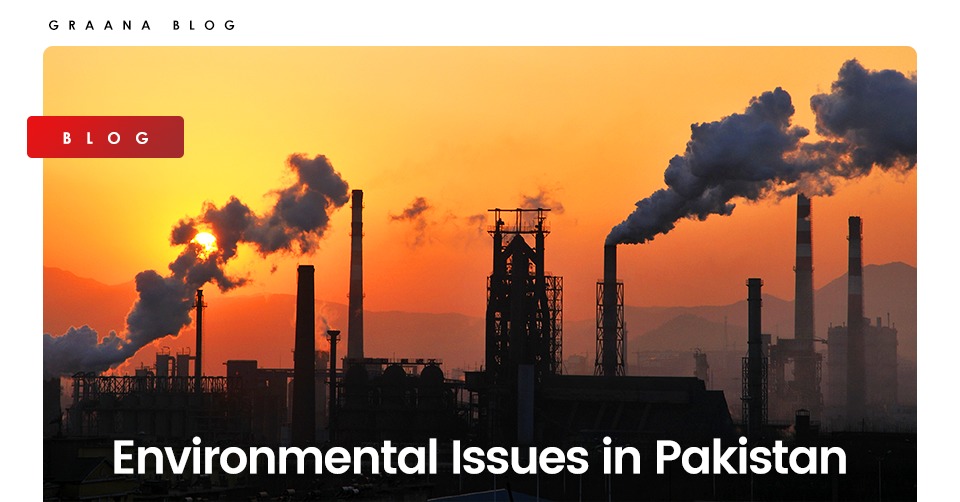Environmental issues in Pakistan
Marvi Abro
Writer
Student of APS&C Badin.

Pakistan faces several environmental issues that pose significant challenges to its sustainable development and the well-being of its population. Some of the prominent environmental issues in Pakistan include:
- Air Pollution: Pakistan’s major cities, particularly Lahore and Karachi, suffer from severe air pollution. Factors contributing to air pollution include industrial emissions, vehicular emissions, brick kilns, burning of crop residues, and poor waste management practices. The high levels of air pollution have detrimental effects on public health, leading to respiratory diseases and other health problems.
- Water Scarcity: Pakistan is a water-stressed country, with a limited freshwater supply that is further exacerbated by mismanagement, population growth, and climate change. The country heavily relies on the Indus River system, which is under pressure due to reduced water flows, pollution, and inefficient irrigation practices. This has led to water scarcity, affecting agriculture, human consumption, and ecosystem health.
- Water Pollution: Water pollution is a significant concern in Pakistan, particularly in rivers, lakes, and coastal areas. Industrial effluents, agricultural runoff, and inadequate sewage treatment systems contribute to the contamination of water bodies, which has severe implications for public health, aquatic life, and access to safe drinking water.
- Deforestation: Deforestation rates in Pakistan are alarmingly high due to illegal logging, unsustainable land use practices, and the conversion of forested areas into agricultural land. Deforestation contributes to soil erosion, loss of biodiversity, and disruption of ecosystems, leading to adverse effects on climate, water availability, and the livelihoods of local communities.
- Land Degradation: Soil erosion, desertification, and land degradation are significant environmental challenges in Pakistan. Unsustainable agricultural practices, overgrazing, deforestation, and improper land management contribute to soil erosion and degradation, reducing soil fertility and agricultural productivity.
- Climate Change: Pakistan is highly vulnerable to the impacts of climate change, including increased frequency and intensity of extreme weather events such as floods, droughts, and heatwaves. These events have severe consequences on agriculture, infrastructure, water resources, and human settlements.
- Biodiversity Loss: Pakistan’s rich biodiversity is under threat due to habitat destruction, illegal wildlife trade, pollution, and climate change. Several species, including the snow leopard, Indus River dolphin, and various bird species, are endangered or critically endangered.
Addressing these environmental challenges requires concerted efforts from the government, civil society, and individuals. This includes implementing and enforcing environmental regulations, promoting sustainable land and water management practices, investing in renewable energy sources, raising awareness about environmental issues, and encouraging public participation in conservation efforts. International cooperation and support are also vital to mitigate the environmental impact and promote sustainable development in Pakistan.


Mashallah